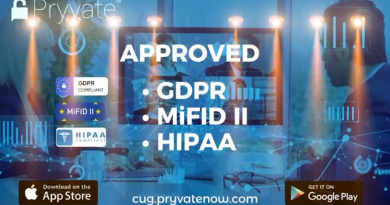Privacy Is No Longer a “Nice to Have.” It’s a Business Imperative.
Although the death of the cookie has received a recent—but temporary—reprieve from Google, a cookie-less world is on the horizon and businesses can no longer afford to be opaque about privacy. Overarching consent forms, one-line privacy disclosures, and other misleading tactics won’t stand the test of time—and we’re seeing a shift in the mindset of consumers and in the privacy game.
While tech pioneers such as Apple, Google, and Twitter have been leading in privacy ethics for some time, many companies still sidestep ethical, transparent data practices rather than adopt a mindset that prioritizes customer privacy and ethics. Data use in the correct context is clear and understood. For example, when you show your ID as proof of age, you don’t expect that individual to take down your address and send you a marketing promotion. Why is it any different when using products and services? It’s time businesses provide the transparency consumers are asking for.
Privacy is no longer a “nice to have.” And today’s focus on the ethics around privacy is much more than a cultural moment, it’s a moment for businesses to grasp and use to lead. With businesses thinking they are doing better, and consumers thinking businesses are doing worse, you’re left with an area of ownable strategic whitespace. Here are some initial privacy guidelines to get you started.
The privacy revolution
Have you seen how industry leaders are building new ways to approach customer data? There’s a change in the air, and instead of believing privacy has no business value, why not acknowledge its potential? Don’t just look at the short-term profits from leveraging data, look toward the long-term trends—millennials and generations that follow are more privacy conscious, with a higher awareness of what they opt in to. Don’t get hung up on the compliance hoops, legal roadblocks, and security headaches that additional privacy safeguards bring. Think about how you can mold them into what they really are: value propositions for your customers. Consider Unilever’s perspective when it comes to data ethics: they go beyond bare-bones compliance in order to ensure a customer-first system. Then the question becomes, how do you turn cost centers into a value center? You pitch it as an extension of your business. Ingrain it into your solutions and build upon those. Your customers will notice.
When Uber welcomed privacy into the way they do business, they began scaling their efforts and didn’t let it hinder them from being innovative. Understand that even though you can build a top-notch, sustainable privacy program, you won’t see profits overnight. But you can still act now. Like any other pillar of your business, first establish a baseline, then set goals and continually assess them internally, building programs to reach those goals.
Stronger customer connections
How could a shift in your privacy mindset strengthen customer connections? Embedding one that mirrors how you would like your data to be handled is a game-changer and is worth tackling early on. Start with addressing trust and transparency of use. Even if the transparency may expose issues, it opens a dialogue so customers can be involved with improvements. And be open to exploring your current relationship with privacy. Conduct a privacy audit, for example, where you’ll benefit from rooting out problem areas from the start.
Let’s take a page from Apple’s Steve Jobs. When he was grilled on privacy at the 2010 D8 conference, Jobs said, “Privacy means people know what they’re signing up for. In plain English and repeatedly.” Customers need to be able to trust businesses again, so businesses have to change their habits. The idea that harvesting an immense amount of data will provide more insights isn’t the right mindset. Collect the right amount of data ethically and analyze it intelligently. In turn, your insights will generate better relationships and consumer experiences. The time for experimentation is now, and there’s going to be plenty of new methods, tools, and strategies built, but only businesses and customers will determine what sticks. It’s OK if new tactics bring to light areas where you’re lacking in trust and transparency—you’ve successfully opened the dialogue with your customers to be involved in improvements.
Strategies based on transparency
Where can your customers help sharpen a more privacy-focused mindset? You’ve been handed an opportunity to evaluate who your customers are, what’s important to them, and how you’re going to change your systems to build better, more-transparent relationships with them. Begin or continue that open dialogue to learn about their needs, and use that data to create better value exchanges that are clear and consensual. How you handle your customers’ precious data will determine if they hang around or go window-shopping.
A perfect example of a strategy shift based on transparency is Mondelez seeing an opportunity rather than a roadblock after Google affirmed the end of the cookie. Seeing this as a value proposition, Mondelez adapted their strategy without the need for harvesting their customers’ data. From using the first-party data they gathered with an open dialogue, they’re able to engage with their customers on a broader scale. This is the kind of move that builds loyalty, one you can build brand moments upon.
An ownable moment
While there are many pioneers blazing the trail, there is still much more room for improvement. And rather than speaking to the narrative of the day, shatter the norm and make something with this blank canvas. Here’s an ownable moment. What will you do with it?
source : https://www.cpomagazine.com/



